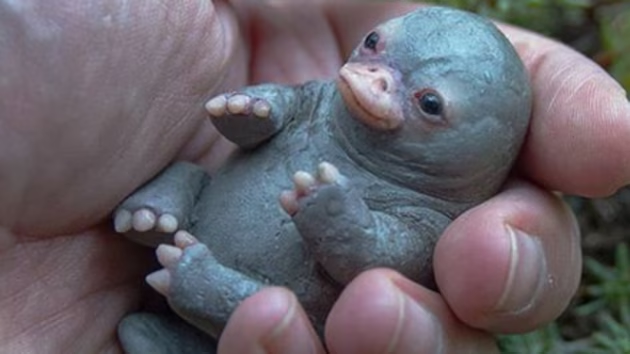
blue nose pitbull puppy
Among the many variations of the Pitbull, the Blue Nose Pitbull puppy stands out for its unique coloring, intelligent personality, and devoted nature. Instantly recognizable by their soft bluish-gray coat and steel-blue nose, these dogs attract admiration—but also come with responsibilities that require informed and dedicated ownership.
Despite their tough appearance, Blue Nose Pitbulls are known for being affectionate, loyal, and eager to please. As puppies, they are energetic, playful, and incredibly smart—traits that make them both fun and challenging to raise. While they belong to the American Pit Bull Terrier (APBT) breed, the “blue nose” refers specifically to a color variation, not a separate breed.
In this article, we’ll explore everything you need to know about raising a Blue Nose Pitbull puppy—from temperament and training to health, diet, and care tips—so you can confidently decide if this striking dog is right for your home.
What Is a Blue Nose Pitbull?
A Blue Nose Pitbull is an American Pit Bull Terrier with a blue-gray coat and nose, caused by a recessive dilution gene that affects melanin production. This gene reduces the intensity of black pigment, resulting in the distinctive blue-gray coloration.
While they may look rare or “special edition,” Blue Nose Pitbulls are not a separate breed. Their color comes from selective breeding of dogs that carry the dilute gene. In addition to their trademark nose and coat, many also have:
- Light gray or amber eyes
- White markings on the chest or paws
- Short, smooth coats
- Muscular, stocky builds
Because the color is the result of gene pairing, blue nose puppies can be more prone to genetic health issues if bred irresponsibly.
Temperament and Personality
Blue Nose Pitbull puppies are typically loving, smart, and full of energy. With early training and proper socialization, they grow into loyal, obedient, and gentle companions. While they may look intimidating, they’re often affectionate cuddle bugs at heart.
Key personality traits include:
- Loyalty: Fiercely devoted to their family
- Intelligence: Quick learners and responsive to training
- Protectiveness: Naturally alert and watchful
- Sociability: Friendly with humans when well-socialized
- Playfulness: Love games and mental stimulation
That said, Pitbulls can sometimes be territorial or dominant, especially if not trained consistently from a young age. Early positive reinforcement, exposure to new people, places, and pets is key to shaping a well-balanced adult dog.
If you’re new to training strong, intelligent breeds, the American Kennel Club’s puppy training guide offers helpful foundational steps to start off right.
Exercise and Activity Needs
Blue Nose Pitbull puppies are high-energy dogs and require daily exercise to stay healthy and happy. Without sufficient physical and mental stimulation, they can become destructive or anxious.
Ideal daily activities include:
- Walks or jogs (30–60 minutes daily)
- Tug-of-war or fetch
- Puzzle toys or treat-dispensing games
- Obedience or agility training
- Off-leash play in secure areas
This breed thrives in active households and enjoys being included in family activities. Because they are prone to muscle gain, exercise helps maintain ideal weight and reduces boredom-related behavior issues.
Feeding and Nutrition
A growing Blue Nose Pitbull puppy needs a balanced, protein-rich diet to support their muscle development and overall health. Look for dog foods that contain:
- High-quality animal protein (chicken, beef, fish, lamb)
- Omega fatty acids for coat and skin health
- Calcium and phosphorus for bone growth
- Avoid fillers like corn, soy, or artificial additives
Feeding schedule:
- 8–12 weeks: 3–4 meals per day
- 3–6 months: 3 meals per day
- 6–12 months: Transition to 2 meals per day
- After 12 months: Adult feeding schedule and portion control
Consult your vet to determine the correct caloric intake based on activity level, weight, and growth stage.
Grooming and Coat Care
Despite their luxurious look, Blue Nose Pitbulls are relatively low-maintenance when it comes to grooming. Their short coat requires minimal upkeep but still benefits from regular care.
Grooming routine:
- Brushing: Once or twice per week to reduce shedding
- Bathing: Every 4–6 weeks or when dirty
- Ear cleaning: Weekly to prevent infections
- Nail trimming: Every 2–3 weeks
- Dental care: Brush teeth 2–3 times a week
Because of their short fur and light skin, Blue Nose Pitbulls can be prone to sunburn or skin irritation, especially on their nose and belly. Consider using dog-safe sunscreen when spending extended time outdoors.
Health Concerns
Blue Nose Pitbulls can be vulnerable to genetic health issues, particularly when bred without proper screening. Common concerns include:
- Skin allergies and mange
- Hip dysplasia
- Heart disease
- Cataracts or eye issues
- Immune deficiencies
Regular vet checkups, vaccinations, and early screening help catch and manage potential issues. Always work with reputable breeders or adoption agencies who prioritize health over aesthetics.
You can learn more about common health problems in Pitbulls from the PetMD Pitbull health overview, including symptoms to watch for and preventive care tips.
Socialization and Training
Proper socialization is critical for a Blue Nose Pitbull puppy. Introduce them to different people, pets, and environments starting as early as 8 weeks. Social pups grow into confident, well-adjusted dogs.
Essential training milestones:
- House training and crate training
- Leash manners
- Sit, stay, come, and down
- Bite inhibition and mouth control
- Calm greetings and polite play
Avoid harsh training methods. Pitbulls are sensitive and eager to please, so positive reinforcement and consistency are far more effective. Early obedience classes can help set the foundation for a lifelong bond.
Legal Considerations and Breed Misconceptions
Sadly, Pitbull-type dogs, including Blue Nose Pitbulls, are often affected by Breed Specific Legislation (BSL) in certain regions. Some areas restrict or ban ownership based on appearance, not behavior.
Before bringing a Blue Nose Pitbull puppy home, check your local laws and housing regulations. Also, be prepared to advocate for your dog and help others understand the breed’s true nature.
Blue Nose Pitbulls are not inherently aggressive. With proper upbringing, they are among the most affectionate and loyal dogs you can own.
Conclusion: Beauty, Brains, and Loyalty in One Package
A Blue Nose Pitbull puppy brings unmatched loyalty, playful energy, and striking looks into any home ready for the responsibility. While their color may draw attention, it’s their heart, intelligence, and bond with their family that truly stand out.
With proper care, training, and socialization, your puppy can grow into a well-behaved, affectionate companion that defies stereotypes and proves why Pitbulls remain one of the most misunderstood—and beloved—dog breeds.






